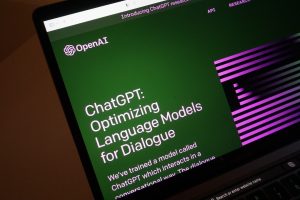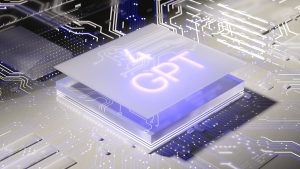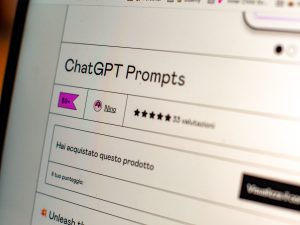Introduction to Chat GPT Ownership: Unleashing the Potential of Artificial Intelligence
As the field of artificial intelligence continues to advance at an unprecedented pace, one of the most intriguing developments is the emergence of Chat GPTs, or chat-based language models. These powerful AI systems possess the ability to generate human-like text and engage users in interactive conversations. However, as the technology becomes more accessible, it raises important questions about ownership and its implications. In this blog post, we will explore the fascinating world of Chat GPT ownership, its development, key players, ethical considerations, and the impact it has on content generation. Additionally, we will delve into future trends, specifically the decentralization of Chat GPT ownership, and its potential consequences. Get ready to embark on a journey into the exciting and ever-evolving realm of AI ownership!
Introduction To Chat Gpt Ownership 👇
Chat GPTs, or Chat Generative Pre-trained Transformers, have revolutionized the way we interact with AI technology. These sophisticated language models have the ability to understand and respond to human language, making them ideal for chatbot applications and virtual assistants. However, the ownership of these powerful AI systems raises important questions about accountability and control. In this blog post, we will explore the introduction to chat GPT ownership and the various stakeholders involved.
When we talk about chat GPT ownership, it is essential to understand the different entities involved in the development and deployment of these systems. The ownership can be divided into two main categories: the companies or organizations developing the chat GPTs and the end-users who utilize these systems.
The companies or organizations that develop chat GPTs invest significant resources in research and development to create these advanced language models. They hold the intellectual property rights and ownership of the underlying algorithms and datasets that power the GPTs. These tech giants and research institutions have a major stake in the chat GPT ownership landscape. Examples of companies that have developed chat GPTs include OpenAI, Google, Facebook, and Microsoft.
The Development Of Chat Gpts
Chat GPTs, or Generative Pre-trained Transformers, have rapidly evolved and developed over the past few years. These sophisticated models are powered by advanced artificial intelligence (AI) and natural language processing (NLP) techniques. In this blog post, we will delve into the intriguing journey of how chat GPTs have been developed, showcasing the remarkable advancements and breakthroughs in this field.
One of the key players in the development of chat GPTs is OpenAI, an AI research laboratory. OpenAI is renowned for its pioneering work in creating transformative AI systems. They are responsible for the development of the original GPT model, which served as the foundation for chat GPTs. OpenAI’s mission is to ensure that artificial general intelligence (AGI) benefits all of humanity. Their commitment to openness, collaboration, and responsible AI deployment has significantly influenced the development and ownership of chat GPTs.
Another important player in the development of chat GPTs is the research community. Numerous researchers and scientists have dedicated themselves to exploring and improving the capabilities of these models. Through continuous iterations and advancements, they have pushed the boundaries of what chat GPTs can achieve. Their tireless efforts have paved the way for the impressive capabilities and functionalities of the chat GPTs we encounter today.
- OpenAI – An AI research laboratory and key player in the development of chat GPTs.
- Research community – Scientists and researchers who have contributed to the advancement of chat GPTs.
| Advancements | Impact |
|---|---|
| 1. Pre-training techniques: The development of more efficient and effective pre-training techniques has significantly enhanced the performance of chat GPTs. These techniques involve training the models on vast amounts of internet text, enabling them to acquire a broad knowledge base. | 1. Improved language understanding and generation: As chat GPTs have evolved, their ability to understand and generate human-like responses has improved significantly. This has led to more engaging and realistic conversations with users. |
| 2. Contextual understanding: Chat GPTs now possess the capability to better understand the conversational context. They can consider previous messages and responses, allowing for more meaningful and coherent interactions. | 2. Enhanced user experience: The development of chat GPTs with improved contextual understanding has resulted in more accurate and relevant responses. This enhances the overall user experience and makes interactions with the models more seamless. |
| 3. Fine-tuning: Through fine-tuning techniques, chat GPTs can be customized to specific domains or tasks. This enables them to provide more specialized and tailored responses based on user requirements. | 3. Increased versatility: The ability to fine-tune chat GPTs for specific domains or tasks has expanded their range of applications. They can now be utilized in various industries, such as customer support, content creation, and virtual assistants. |
The development of chat GPTs has revolutionized the way we interact with AI-powered conversational systems. However, as with any technological advancement, ethical considerations play a crucial role. In the next blog post, we will explore the ethical considerations associated with chat GPT ownership, shedding light on crucial discussions and concerns surrounding this topic.
Key Players In Chat Gpt Ownership
When it comes to the ownership of chat GPTs (Generative Pre-trained Transformers), there are several key players in the industry. These players are instrumental in the development, research, and deployment of chat GPT models. In this blog post, we will explore the various entities involved in the ownership of chat GPTs and their roles in shaping the landscape of conversational AI.
Research Institutions and Universities: One of the key players in chat GPT ownership is research institutions and universities. These institutions are at the forefront of AI research and contribute significantly to the advancements in natural language processing. They conduct extensive research, develop innovative algorithms, and create state-of-the-art models like chat GPTs. Research institutions collaborate with industry partners to ensure the practical applications of their research findings.
Tech Companies: Tech companies also play a vital role in the ownership of chat GPTs. These companies invest heavily in research and development to create robust conversational AI models. They employ teams of data scientists, machine learning engineers, and linguists who work together to improve the performance and capabilities of chat GPTs. Tech companies strive to make chat GPTs commercially viable and integrate them into various products and services.
OpenAI and Similar Organizations: OpenAI, as one of the most well-known organizations in the field, holds a significant stake in chat GPT ownership. OpenAI aims to ensure that artificial general intelligence benefits all of humanity. They develop and release chat GPT models to foster AI research while also being mindful of potential risks and ethical considerations. OpenAI actively collaborates with researchers and organizations to drive innovation and establish best practices for chat GPT ownership.
| Key Players in Chat GPT Ownership |
|---|
| Research Institutions and Universities |
| Tech Companies |
| OpenAI and Similar Organizations |
These key players collectively contribute to the ownership of chat GPTs. Their collaboration, research, and development efforts shape the capabilities and ethical considerations associated with chat GPTs. Together, they drive the advancement of conversational AI and propel us into a future enriched by intelligent virtual assistants and chatbots.
Ethical Considerations In Chat Gpt Ownership
As the field of artificial intelligence continues to advance, one topic that has garnered significant attention is chat Gpt ownership. Chat Gpt, which stands for Chat-generated pre-trained transformer, refers to the technology behind various AI chatbots and virtual assistants. These systems are designed to engage in conversation with users and provide human-like responses by leveraging vast amounts of text data. However, as chat Gpt technology becomes increasingly sophisticated and prevalent, ethical considerations surrounding its ownership have come to the forefront.
One of the primary ethical concerns in chat Gpt ownership revolves around who ultimately owns the virtual entity. Is it the individual or organization that developed and deployed the chat Gpt? Or does the ownership reside with the users who interact with the system? This question raises various issues related to data privacy, intellectual property rights, and accountability.
When considering the ownership of chat Gpt, it is crucial to address the implications for user privacy. Chat Gpts are trained on vast amounts of text data, which often includes user conversations and interactions. This raises concerns about how this sensitive information is stored, accessed, and potentially used without the users’ explicit consent. Clear guidelines and regulations must be established to protect user privacy and ensure responsible data handling practices by the chat Gpt owners.
- Moreover, intellectual property rights play a significant role in chat Gpt ownership.
| Key Players | Ownership Approach |
|---|---|
| Large Tech Companies | Traditional ownership model |
| Open Source Community | Collective ownership |
| Individual Developers | Individual ownership |
Chat Gpt systems often involve complex algorithms and models developed by teams of researchers and engineers. The intellectual property rights surrounding these technologies need to be clearly defined to prevent unauthorized use or exploitation. Additionally, questions arise regarding the impact of proprietary ownership on the development and advancement of chat Gpt technology. Should chat Gpt systems be open-source to foster collaborative innovation, or can proprietary ownership incentivize investment and drive technological progress?
Lastly, accountability is a crucial ethical consideration in chat Gpt ownership. In the event of malicious or harmful behavior exhibited by a chat Gpt, who should be held responsible? The individual or organization that deployed the system? The developers who created the underlying models? Or the users who interacted with the system and potentially influenced its responses? Establishing clear lines of accountability is necessary to ensure responsible and ethical use of chat Gpt technology.
The Impact Of Chat Gpt Ownership On Content Generation
Chat GPTs have revolutionized the way we interact with AI and have become a powerful tool in many industries. As these chatbots become more advanced and capable of generating content, the issue of ownership and its impact on content generation has come to the forefront. In this blog post, we will explore the implications of chat GPT ownership on the content generated by these AI-powered systems.
When it comes to the ownership of chat GPTs, the question of “who owns chat GPTs?” arises. It is a complex matter as these systems are usually developed by teams of researchers or engineers who work at companies or institutions. The intellectual property rights to these chat GPTs are typically held by the organization they work for, but the individuals involved in the development process may also have some stake in the ownership.
The ownership of chat GPTs can have a significant impact on the content generated by these systems. The owners may have certain goals or agendas that influence the type of content the chat GPTs produce. For example, a company that owns a chat GPT may use it as a marketing tool to generate content that promotes their products or services. On the other hand, an individual owner may have personal preferences or biases that can shape the content generated by the chatbot.
- Content generated by chat GPTs is not only influenced by ownership but also by the training data it was exposed to. The algorithms used to train these systems learn from vast amounts of text data, which may contain biases or misinformation. This can result in the chatbot generating content that reflects these biases or propagates false information.
- Another important consideration is the impact of ownership on the ethical implications of content generation. Chat GPTs have the potential to write articles, blogs, and even create social media posts. If the ownership is not transparent or if there are hidden agendas behind the content generated, it can lead to misinformation, propaganda, or manipulation of public opinion.
- In the future, the decentralization of chat GPT ownership could be a potential trend. With the development of blockchain technology, it is possible to create decentralized AI platforms where ownership and control are distributed among a network of participants. This could help address the issues of bias, misinformation, and ethical concerns by allowing multiple stakeholders to have a say in the functioning and content generation of chat GPTs.
| Key players in chat GPT ownership: | Ethical considerations in chat GPT ownership: |
|---|---|
| 1. Tech companies like OpenAI and Google | 1. Transparency and accountability |
| 2. Research institutions and universities | 2. Addressing biases in training data |
| 3. Individual developers and entrepreneurs | 3. Preventing the spread of misinformation |
In conclusion, the ownership of chat GPTs plays a crucial role in the content generated by these AI-powered systems. It can influence the goals, biases, and agendas behind the content and has ethical implications for the accuracy and transparency of the information generated. However, the future trend of decentralization offers potential solutions to address these concerns and create a more inclusive and unbiased approach to chat GPT ownership and content generation.
Future Trends: Decentralization Of Chat Gpt Ownership
The ownership of Chat Gpt, an advanced conversational AI model, has been a topic of interest and concern among various stakeholders. Traditionally, the ownership of Chat Gpt was centralized, with a few key players having exclusive control over the technology. However, with the rapid advancements in this field, there is a growing trend towards decentralization of Chat Gpt ownership.
Decentralization
Decentralization refers to the transfer of control and ownership from a central authority to a distributed network of participants. In the context of Chat Gpt ownership, decentralization involves empowering individual users and developers to own and control their own instances of the technology. This shift has been driven by a range of factors, including technological advancements, ethical concerns, and the desire for more democratic access to conversational AI.
Advantages of Decentralization
Decentralization of Chat Gpt ownership offers several advantages. Firstly, it promotes innovation and creativity by allowing developers to freely experiment and build upon the technology. This can lead to the emergence of diverse and specialized applications that cater to specific needs and demographics. Additionally, decentralization increases transparency and accountability, as the ownership of Chat Gpt is no longer limited to a small group of entities.
Challenges and Considerations
While decentralization brings numerous benefits, it also poses certain challenges and considerations. One key concern is the potential for misuse and abuse of Chat Gpt technology. As ownership becomes more widespread, there is a need for robust ethical frameworks and regulations to ensure responsible use. Additionally, decentralized ownership may also lead to fragmentation and lack of interoperability, making it more challenging to leverage the collective intelligence of Chat Gpt instances.
The Role of Collaboration
As the trend towards decentralization of Chat Gpt ownership continues to evolve, collaboration among key players becomes crucial. Collaborative efforts can help address the challenges associated with decentralization and promote the development of shared standards and protocols. By working together, stakeholders can ensure the responsible and inclusive deployment of Chat Gpt technology.
In Conclusion
The future of Chat Gpt ownership is steadily moving towards decentralization. This shift promises to democratize access to conversational AI and foster innovation. However, it also calls for careful consideration of ethical implications and collaboration among stakeholders. With the right approach, decentralization can pave the way for a more diverse, accountable, and impactful future of Chat Gpt ownership.
Frequently Asked Questions
What is chat GPT ownership?
Chat GPT ownership refers to the ownership and control of chat GPT models, which are artificial intelligence systems that are designed to generate human-like text responses in chat-based interactions.
How has the development of chat GPTs evolved?
The development of chat GPTs has evolved significantly over time. Initially, simpler chatbot models were created, but with advancements in natural language processing and machine learning, more sophisticated and capable chat GPT models have been developed.
Who are the key players in chat GPT ownership?
The key players in chat GPT ownership are companies and organizations that either create and own the chat GPT models themselves or provide platforms and services for individuals and businesses to utilize and own chat GPTs.
What are the ethical considerations in chat GPT ownership?
Chat GPT ownership raises ethical considerations such as responsible use of AI, potential biases in training data, avoiding malicious use or misinformation generation, ensuring transparency and accountability, and respecting privacy and security.
How does chat GPT ownership impact content generation?
Chat GPT ownership has a significant impact on content generation, as these models can be used to automatically generate text for various purposes, such as customer support, content creation, or social media interactions, potentially reducing the need for manual content creation.
What are the future trends in chat GPT ownership?
One future trend in chat GPT ownership is the decentralization of ownership, where individuals and communities have more control over their own chat GPT models. This trend may lead to greater customization, privacy, and user empowerment.
What is the introduction to chat GPT ownership?
Introduction to chat GPT ownership provides an overview of the concept and its relevance in the context of artificial intelligence and conversational AI. It sets the foundation for understanding the subsequent topics related to chat GPT ownership.









